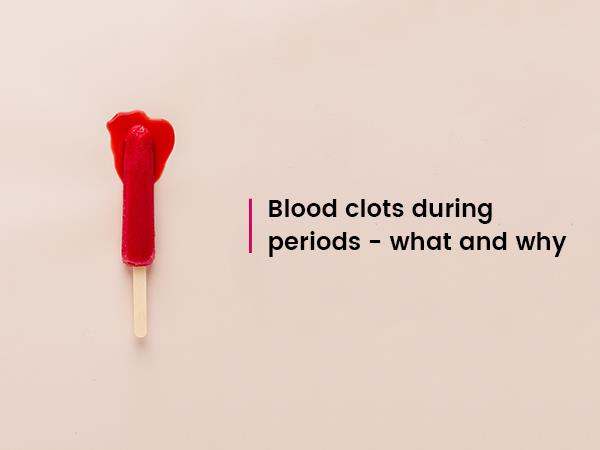Blood clots during periods can be very normal and simply a natural part of your menstrual flow.
Many women pass period clots at some point during their menstrual lifetime. It is usually nothing to worry about and can be managed by using the right menstrual hygiene product that suits your flow.
Signs of blood clots during your period
- A blood clot is a thick mass of menstrual blood that is expelled from your body when you menstruate.
- Clots are most common during the heaviest part of your flow – which is usually the first few days.
- Blood clots look like chunky, jelly-like blobs that vary in size and color.
What causes period blood clots?
During menstruation, the thick lining of your uterus (womb) breaks away. As you menstruate, anticoagulants are released that break down thick menstrual blood before it leaves your body. During a heavy flow, blood is expelled faster and the anticoagulants may not have enough time to break down the blood. That’s when the clots form.
Is my period blood normal?
It’s normal for the consistency of your period blood to change from one period to the next. One month you might experience many large blood clots during your period, another not. This can depend on your diet and lifestyle.
Blood clots in your period are generally bright or darker red and can sometimes make your menstrual flow seem dense and thick.
However, if your period is regularly very heavy (you have to change your pad or tampon every hour), and you are passing many large, thick clots, then visit a doctor for a health check, just to be sure.
Are darker colors and thicker flows normal in menstrual blood?
You may notice that your menstrual blood becomes a darker shade (this can range from dark brown to almost black) as you’re near the end of your period. This is a normal color change. It happens mostly during the end, when the menstrual flow isn’t as heavy anymore. It’s old blood that is not being expelled from the body fast enough.
When to see a doctor?
If you are passing many thick, large clots or bleeding heavily every month, it could be caused by a health issue. Visiting your doctor will help you rule out any further problems. There can occasionally be other causes for blood clots such as hormonal changes, miscarriage, menopause or endometriosis. If you are concerned, get a consult with your doctor.







,